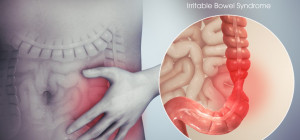 Healthy eating when you’re young may not remain the same as you age. For all your life, healthy eating and a healthy life go hand in hand. But, as you age, your body needs a well-balanced diet that is rich in nutrients. This will help you maintain a healthy weight, keep you active, and keep you away from chronic diseases like diabetes and heart diseases.
Healthy eating when you’re young may not remain the same as you age. For all your life, healthy eating and a healthy life go hand in hand. But, as you age, your body needs a well-balanced diet that is rich in nutrients. This will help you maintain a healthy weight, keep you active, and keep you away from chronic diseases like diabetes and heart diseases.
Here’s why your diet should change as you age:
- Calories: The thumb rule for your calorie intake is you eat lesser calories than you can burn. As you age, due to problems like joint and muscle pain, your mobility and physical activity reduces. If you continue eating more calories, and burn lesser, this will lead to weight gain.
- Appetite: As you age, a loss in your appetite occurs. This could be because of your sensitivity to taste and smell. Eating less isn’t a problem. But, it has to be made sure that whatever you eat is fulfilling your daily requirement of calories and nutrients.
- Medical Condition and Medication: Chronic health problems like cholesterol, high blood pressure, diabetes, osteoporosis, etc. become as common as you age. Along with medication, a healthy diet is also prescribed to tackle these conditions. For instance, for diabetes, less processed sugar is advised, and for high blood pressure, low sodium and calories. Along with these, there are certain vitamins like Vit K has to be maintained at certain levels.
- Oral Health: Poor oral health can also be a cause of malnutrition. Receding gums, toothache, oral infections, can all prevent you from eating a healthy, nutritious diet.
- Immunity: Immune system also weakens as you age, making you prone to all kinds of illnesses, including foodborne illnesses. Important precautions are necessary to avoid any sort of infections and diseases from affecting the body, due to reduced immunity.
Maintaining a healthy diet
- Eating Nutrient Rich Diet
Eating nutritious food will help you keep your caloric intake in check while also supporting your required levels of vitamins, proteins, minerals, fats, and carbs.
Foods such as these can help you get your nutrient dose:
- Beans and lentils
- Nuts and seeds
- Whole grains
- Vegetables and fruits
- Low-fat dairy
Avoid junk food that only contains empty calories. Save desserts, deep-fried foods, and sodas for occasional days.
- Fiber Rich Diet
Problems related to digestive system become common as you age. To avoid constipation, eating foods rich in fiber can help. Fiber is especially useful for the gut. It also helps maintain your cholesterol levels. Foods that are high in fiber are:
- Whole grains
- Fruits and vegetables
- Nuts and seeds
- Oats, beans, and lentils
- Foods with Omega-3 Fatty Acids
Foods rich in Omega-3 fatty acids have numerous benefits. They help keep inflammation at which can be a cause of diseases like rheumatoid, cancer, heart diseases, and arthritis. The food is also shown to slow down the progression of AMD – Macular Degeneration, a condition that leads to poor vision.
Fishes like Tuna, Salmon, Mackerel, sardines are rich in omega-3 fatty acids. Soybeans, flaxseeds, canola oil are also a source of this fatty acid.
- Calcium Rich Diet
Calcium intake significantly reduces as people age. Lack of calcium in the body is a severe problem. To maintain its level, the body starts reabsorbing calcium from bones, making them fragile and brittle.
Calcium is vital to maintaining healthy bones, muscles, and joints. It also keeps blood pressure in check. Green leafy vegetables and dairy products like milk, cheese, and yogurt are rich in calcium. If you’re lactose intolerant or have difficulty absorbing calcium from the diet, you can opt for calcium supplements on the advice of your doctor.
- Staying Hydrated
Dehydration has a number of side effects like drowsiness and confusion. As you age, your body’s ability to conserve water decreases. That’s why you may not feel thirsty or notice the signs. However, your body does need water. A daily recommended dose is 8-glasses of water.
- Vitamin Rich Diet
- Vitamin C– Antioxidants in vitamin C are believed to prevent heart diseases and cancer. It also prevents visible signs of aging by producing collagen. Fruits, vegetables, and supplements with vitamin C can help meet the required amount.
- Vitamin D– This vitamin helps in the absorption of calcium and slows down the rate at which bones lose calcium. It helps prevent osteoporosis by maintaining bone density. Eggs and Fish (salmon and tuna) have natural vitamin D. Other foods include milk, cereals, yoghurt, and juices.
- Foods Rich in Minerals
- Iron produces hemoglobin that carries blood around the body. Lack of iron can limit the supply of oxygen to body tissues, making you feel lethargic and tired. Beans, lentils, tofu, whole-grains contain iron.
- Potassium reduces the chances of kidney stones and maintains blood pressure. It also strengthens the bones. Fruits and vegetables like prunes, bananas, and potatoes contain potassium.
- Magnesium keeps your immune system and bones strong, and your heart healthy. Whole grains, fruits, vegetables, and nuts are rich in magnesium.
Healthy eating is essential when you’re young and its importance increase as you age. Eating right can keep you healthy, active, and independent even as you age and keep common health conditions at bay. Set right your diet plan and enjoy these days of your life to the fullest.
With the increased health awareness and development of the medical field, it has become easier for seniors to be vigilant and keep an eye on their health on day to day basis.
Contributed byhttps://www.seniority.in/







